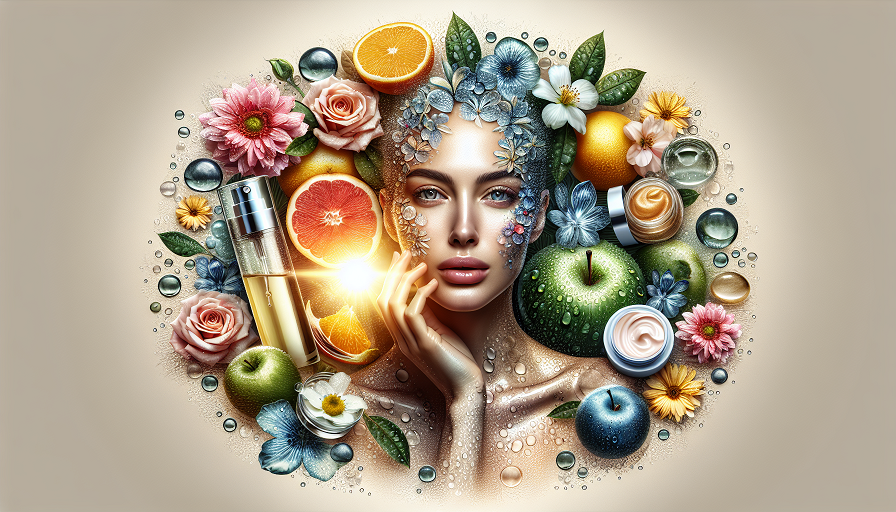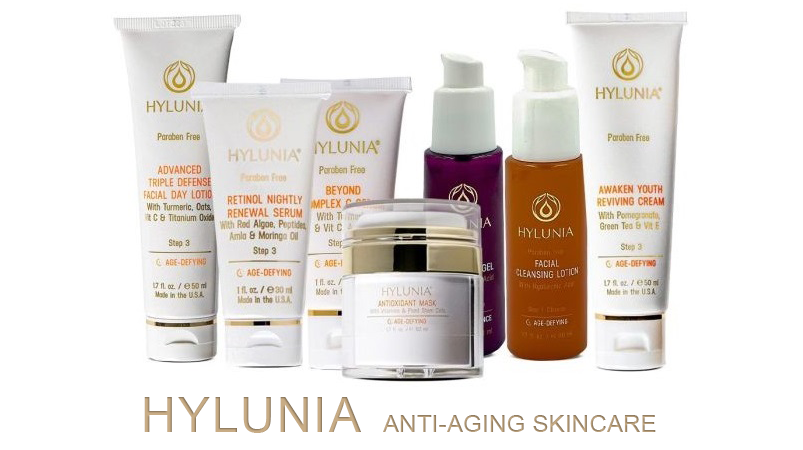
Turning 40 can bring plenty of changes, and our skin isn’t exempt from the shift. The slowdown in collagen production starts to make itself known in fine lines, a little sagging, and that feeling that your skin could use a boost. If you’re noticing these signs, you’re not alone—and there’s good news. There are plenty of ways to naturally encourage your skin to produce more collagen and keep it looking firm and healthy.
Contents
Why Collagen Matters for Aging Skin
Collagen is the protein responsible for keeping skin firm, smooth, and resilient. It acts like the framework that supports your skin, giving it strength and elasticity. But after 40, our bodies produce less collagen each year, which leads to thinning skin, wrinkles, and reduced elasticity. This decline in collagen is a natural part of aging, but with the right care, you can encourage your body to produce more.
The Impact of Reduced Collagen
As collagen decreases, skin loses its ability to retain moisture and elasticity. This often shows up as fine lines around the eyes, mouth, and forehead. Skin can start to look dull or thin, as if it’s lost its youthful bounce. Boosting collagen isn’t about erasing these changes entirely but giving your skin the support it needs to age gracefully.
Collagen Production: Nature’s Slowdown
By age 40, collagen production has likely slowed by around 1% per year, and sun exposure, lifestyle habits, and genetics can make that decline even steeper. So, whether it’s from years of soaking up the sun or just a natural progression, collagen levels are on the downtrend. However, the body’s ability to produce collagen doesn’t vanish; it just needs a little encouragement.
Top Nutrients for Boosting Collagen Naturally
To produce collagen, your body relies on several key nutrients that support healthy skin structure. Making sure you’re getting enough of these nutrients is one of the simplest ways to give your skin a collagen boost from the inside out.
Vitamin C: The Collagen Co-Pilot
Vitamin C plays a critical role in collagen synthesis, acting as a co-factor for enzymes that stabilize and build collagen molecules. Without vitamin C, your body struggles to produce collagen efficiently. Citrus fruits, strawberries, bell peppers, and leafy greens are all rich sources of this essential vitamin. Adding more of these foods to your diet or using a topical vitamin C serum can help support collagen levels.
Amino Acids: The Building Blocks of Collagen
Collagen itself is made up of amino acids, particularly glycine, proline, and hydroxyproline. Protein-rich foods like lean meats, eggs, and legumes provide the amino acids your body needs to build collagen. Bone broth, which is naturally rich in collagen, is another popular choice for getting these amino acids directly.
Antioxidants: Fighting Free Radicals
Free radicals break down collagen over time, speeding up the aging process. Antioxidants combat these free radicals, helping to preserve collagen and protect skin. Foods rich in antioxidants, like blueberries, nuts, and dark leafy greens, can help shield your skin from damage. Topical antioxidants, especially serums containing vitamin C or green tea, are also effective in supporting skin health.
Collagen-Boosting Skincare Ingredients
In addition to diet, certain skincare ingredients can encourage collagen production and help your skin appear firmer. Here are a few that have been proven to support collagen, especially for aging skin.
Retinol: A Skin-Renewing Favorite
Retinol, a derivative of vitamin A, is one of the most researched ingredients for boosting collagen. Retinol stimulates skin cell turnover, allowing fresh skin cells to emerge and improving the skin’s texture. It also encourages collagen production by signaling your body to repair the skin, making it an ideal choice for anyone looking to reduce fine lines and wrinkles.
Peptides: Collagen’s Messengers
Peptides are small chains of amino acids that act as messengers in the skin, signaling it to produce more collagen. Certain peptides, like copper peptides, are particularly effective at enhancing collagen synthesis and strengthening skin. Peptide serums or creams can be a valuable addition to your skincare routine, offering gentle but noticeable results over time.
Hyaluronic Acid: The Hydration Helper
While hyaluronic acid doesn’t directly produce collagen, it provides essential hydration that helps keep collagen fibers plump and resilient. Think of it as the hydration “glue” that holds collagen in place. When skin is well-hydrated, it appears fuller, which helps reduce the appearance of fine lines. Look for serums or moisturizers with hyaluronic acid, and apply them to damp skin for maximum absorption.
Lifestyle Habits That Support Collagen Production
Your lifestyle choices have a big impact on your skin’s health and collagen levels. By making a few adjustments, you can support your body’s natural collagen production.
Sun Protection: Your Collagen’s Best Defense
Nothing breaks down collagen faster than UV radiation. Sun exposure not only accelerates collagen breakdown but also damages existing collagen fibers, leading to premature aging. Make sunscreen your daily companion, even on cloudy days. A broad-spectrum SPF of at least 30 can help protect your skin from harmful UV rays and keep collagen intact.
Quality Sleep for Skin Repair
While you sleep, your body goes into repair mode, which includes collagen synthesis. Aim for 7-9 hours of quality sleep each night, as poor sleep is linked to slower skin recovery and reduced collagen production. Consider a silk pillowcase to reduce friction and prevent creases on your skin as you sleep, helping your skin retain a smooth appearance.
Avoiding Smoking and Reducing Alcohol
Smoking and excessive alcohol consumption are two habits that rapidly age the skin by degrading collagen and depleting essential nutrients. Nicotine constricts blood vessels, reducing blood flow to the skin and making it harder for collagen to form. Alcohol dehydrates the skin and reduces vitamin levels, impacting skin repair. Avoiding or reducing these habits can make a noticeable difference in your skin’s texture and resilience.
Collagen-Boosting Techniques You Can Try at Home
If you’re ready to give your skin a little extra love, there are some home techniques that may help improve collagen production without complicated treatments.
Facial Massage for Blood Flow
Facial massage increases blood flow to the skin, delivering more oxygen and nutrients to the collagen-building cells. Using your fingers or a tool like a jade roller, gently massage your face in upward strokes, focusing on areas prone to sagging. This technique can stimulate collagen and help give your skin a more youthful appearance.
Microneedling: A DIY Skin Boost
Microneedling involves using a tool with tiny needles to create micro-injuries in the skin, which signals the body to produce collagen as it heals. While professional microneedling is often more effective, at-home devices can offer a collagen boost. Just be sure to follow instructions carefully and avoid this method if you have sensitive skin or any skin conditions.
Creating a Collagen-Boosting Routine
Building a routine that encourages collagen production can help you maintain skin resilience as you age. Here’s a simple daily routine:
Morning Routine
- Cleanse with a gentle, hydrating cleanser.
- Apply a vitamin C serum for antioxidant protection and collagen support.
- Follow with a moisturizer containing hyaluronic acid for hydration.
- Finish with sunscreen (SPF 30 or higher) to protect collagen from UV damage.
Evening Routine
- Cleanse to remove makeup and impurities.
- Apply a retinol serum or cream to stimulate collagen production.
- Layer on a peptide serum to support skin structure.
- Finish with a nourishing moisturizer to keep skin hydrated overnight.
Remember, consistency is key. It takes time for the skin to respond to new ingredients and practices, so stick with your routine and give your skin the attention it deserves.
Boosting collagen after 40 isn’t about turning back the clock, but supporting your skin as it naturally changes. With the right ingredients, habits, and techniques, you can maintain healthy, resilient skin that looks and feels its best at any age.

